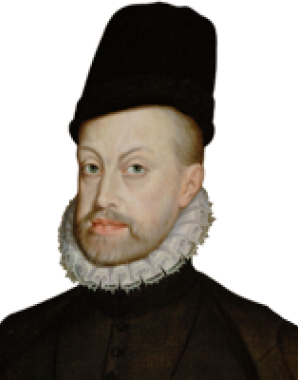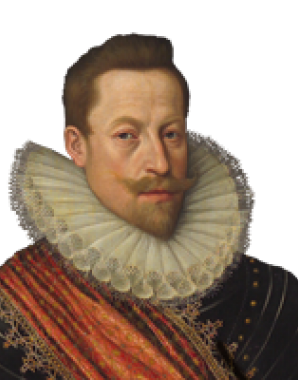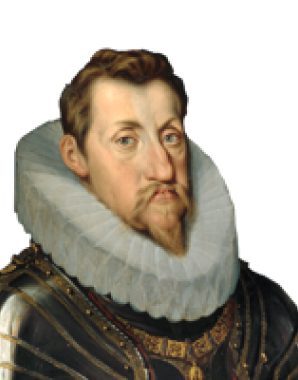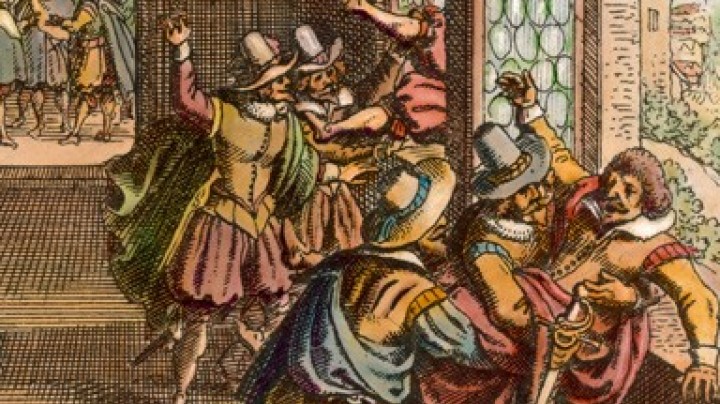Philip III: overshadowed by an overly powerful father
As the single surviving son from his father’s four marriages, Philip bore all the hopes of the dynasty.
Philip was sickly child and suffered from such severe problems with his digestion that it was feared he would not survive childhood.
He resembled his father Philip II physically and in his nature: reserved and shy, he hid himself behind his royal office. However, the son was far less diligent and showed only moderate gifts for governance. His father, to whose authority he subjected himself unconditionally, once said in resignation that God had granted him many dominions but not a suitable successor.
At the age of twenty Philip took over the regency of the Spanish dominions from his father and thus also its problems, which included enormous national debt and unresolved conflicts as well as social and economic shortcomings. The year 1610 saw the peak of silver imports from South America, but this initial blessing had long become a curse. Imports of precious metal had an adverse effect on Spain itself, with massive inflation resulting in an economic slowdown.
Scapegoats for the general crisis were found in the Moriscos, descendants of the Arabs in Andalusia who had converted – sometimes only superficially – to Christianity. Although they constituted an important economic factor in the region, they were branded disloyal and persecuted. In 1609 they were banished from Spain, which quite apart from the human tragedy was also a heavy blow to the economic power of the country, as it meant the loss of a quarter of a million people all at once.
In contrast to his father, who had taken sole command of the decision-making process, Philip III handed over his power. The Spanish nobility or grandees, whose influence had been severely curtailed under Philip II, gradually reassumed important positions. Philip’s favourite, the Duke of Lerma, became the king’s powerful representative. Favouritism and corruption flourished under the aegis of the ‘greatest thief in Spain’, as the duke was known, until he was toppled in 1618.
The decadence of the court was reflected in the general weakness of the state. The financial exhaustion of the realm went hand in hand with war fatigue, which eventually led to a truce with the rebel provinces of the northern Netherlands. The conflict with England was also settled. Rapprochement with France was achieved under the regency of Marie de' Medici, who was reigning in the stead of her son, Louis XIII, then still a minor. This resulted in marriages between the children of the two families: Philip’s son, named after his father, and his daughter Anna, married the French king Louis XIII and his sister, Isabella of Bourbon.
An event during the reign of Philip III that was to have importance for the Austrian branch of the dynasty was the conclusion of the Oñate Agreement in 1617. Named after the chief Spanish negotiator, the Count of Oñate, the agreement documented Philip’s waiving of his claim to the crowns of Bohemia and Hungary after the death of Emperor Matthias, who had no heir, in favour of Archduke Ferdinand from the Styrian branch of the dynasty. This secured the rise of Ferdinand (as Emperor Ferdinand II), an uncompromising Catholic, and the uniting of the inheritance of the imperial line with the Styrian branch, also bringing him the support of Spain in his fight for the Bohemian and Hungarian throne. In return, Spain received strategically important anterior Austrian territories in Alsace along the border with France.
Philip III died in 1621 following a lengthy illness. In retrospect he was regarded as a weak king under whose rule Spain stagnated, with the result that its status as a Great Power became increasingly compromised.















